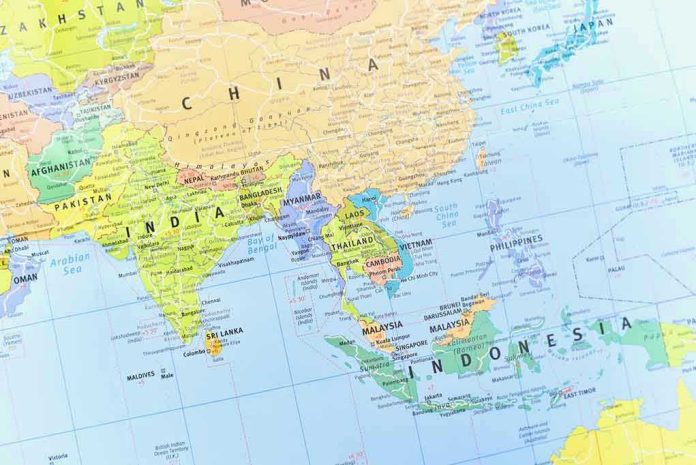
The recent diplomatic efforts between China and Japan signal a potential shift in regional dynamics, as China expresses hope to “advance” ties with Japan’s new Prime Minister, amidst historical tensions and geopolitical complexities.
Story Highlights
- China seeks to improve relations with Japan under new PM.
- Historical tensions and geopolitical dynamics influence relations.
- Potential for enhanced economic cooperation and regional stability.
- Diplomatic efforts focus on strategic dialogue and economic ties.
China’s Strategic Move to Improve Japan Ties
China is actively pursuing improved relations with Japan under the new Prime Minister, Ishiba Shigeru. This marks a significant diplomatic effort by China, seeking to stabilize regional dynamics through enhanced economic cooperation and strategic dialogue. The historical complexities between these nations, including disputes over the Senkaku Islands and the Taiwan Strait, pose significant challenges, but both countries are showing willingness to engage in constructive talks.
China’s President Xi Jinping has expressed a clear desire to advance ties with Japan, highlighting mutual benefits and strategic interests. Japan’s balancing act between its alliance with the United States and economic dependency on China adds layers of complexity to these diplomatic efforts. Nevertheless, Japan has indicated openness to hosting a Japan-China-South Korea Foreign Ministers’ Meeting, signaling their commitment to sustaining dialogue and cooperation.
Historical Context and Geopolitical Dynamics
The relationship between China and Japan has been turbulent, marked by periods of tension and cooperation. Key historical events, such as the anti-Japanese demonstrations in China and trade agreements, have shaped the current diplomatic landscape. The geopolitical challenges, including U.S.-China tensions and regional security concerns, continue to influence Japan-China relations. Despite these challenges, both nations recognize the economic significance of their partnership.
Japan’s economy remains significantly tied to China, necessitating a balanced approach to foreign relations. As China seeks to stabilize its regional influence, Japan’s strategic importance cannot be understated. This dynamic influences the ongoing diplomatic efforts and highlights the importance of maintaining stable relations amid complex international affairs.
Potential Impacts and Future Prospects
In the short term, improved relations between China and Japan could enhance economic cooperation and regional stability. Long-term implications include the potential for strategic partnerships that could reshape regional security dynamics. Enhanced trade and investment opportunities are expected to benefit both nations, while improved diplomatic ties could reduce historical tensions and promote cultural exchanges.
Experts emphasize that while the potential for improved relations holds promise, historical tensions and geopolitical rivalries remain significant hurdles. Sustained dialogue and cooperation are essential to overcoming these challenges, ensuring that both nations can benefit from a stable and prosperous partnership.
Sources:
Wikipedia: China-Japan relations











